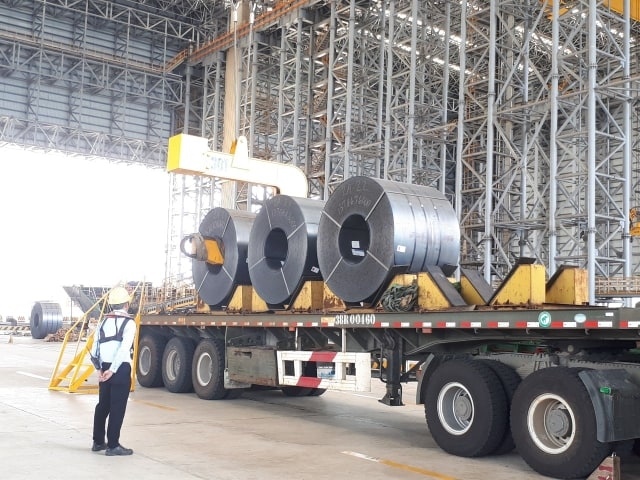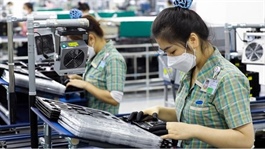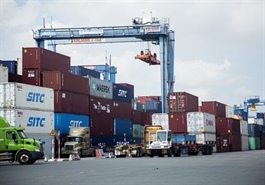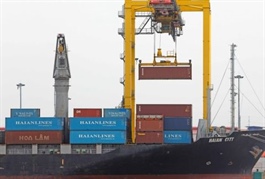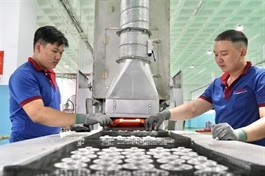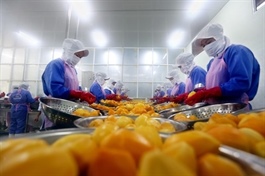Vietnam to buy up to 20% of excess rooftop solar power in northern region
Vietnam to buy up to 20% of excess rooftop solar power in northern region
Mobilizing this energy source into the national grid should be based on the country's needs, development realities, and regional characteristics.
Deputy Prime Minister Tran Hong Ha has instructed the Ministry of Industry and Trade to study increasing the surplus purchase rate of rooftop solar electricity to 20% of installed capacity in northern region.
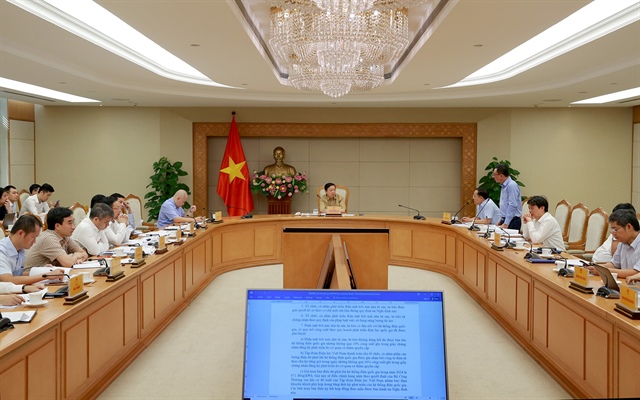
Deputy Prime Minister Tran Hong Ha at the meeting. Photo: Minh Khoi |
This directive was given at a Government meeting on July 26, to discuss the draft decree promoting self-produced, self-consumed rooftop solar power.
Deputy Minister of Industry and Trade Nguyen Hoang Long mentioned that the final draft retained the proposal that rooftop solar power for personal use not connected to the national grid can be developed without limit.
If people choose to feed surplus power into the grid, they can only sell under 10% of the installed capacity. The surplus fed into the grid must also comply with the approved power planning, which is not to exceed 2,600 MW by 2030, said Long.
However, Deputy Prime Minister Ha argued that mobilizing this energy source into the national grid should be based on the country's needs, development realities, and regional characteristics. Therefore, he asked the drafting agency to consider raising the surplus purchase rate to 20% of installed capacity in the north, while keeping it at 10% in the central and southern regions as originally proposed.
Previously, many experts suggested that policies to promote rooftop solar power should take into account the significant differences in efficiency between regions, particularly in the north.
Currently, rooftop solar in the north accounts for about 6% of the total and less than 0.4% of the total in Hanoi. The capacity is mainly concentrated in the southern and central regions (nearly 90%). The installation rate on individual houses and civilian buildings is 17%.
The discrepancy is due to the north's distinctive four-season climate, where the hot season is short and the sunlight is not as strong as in the central and southern regions, leading to insignificant energy consumption. This reduces investment efficiency, making people less inclined to install solar systems.
Regarding the buyback price, Ha suggested that the regulator should study applying a net metering mechanism or a price based on the lowest bid in the competitive electricity market at the time of purchase. Previously, the Ministry of Industry and Trade proposed an interim price of VND600-700 (US$0.024-0.028) per kWh, specifically VND671 ($0.027) per kWh (calculated based on the average avoided cost in 2023).

Overview of the meeting. |
Additionally, he emphasized that the drafting agency should establish measures to control and ensure system safety when mobilizing surplus capacity to the grid. This should be monitored by local power companies on a regional and area basis. Moreover, safety standards for construction and fire prevention in the installation of equipment and systems should be simplified in terms of procedures and documentation.
Deputy Prime Minister Ha stated that the Ministry of Industry and Trade must have clear policies to encourage organizations and individuals to install storage devices. "People investing in energy storage devices to become base-load electricity that can be mobilized during peak hours must receive tax and credit incentives," he said.
Ha also called for regulations that would allow those installing storage devices to feed 100% of installed capacity into the grid. If there are planning obstacles, the Ministry of Industry and Trade should propose adjustments if technology, technical, and cost requirements are met, as requested by the Deputy Prime Minister.
Currently, the country has over 103,000 rooftop solar projects with a total installed capacity of over 9,500 MW. According to Power Plan VIII, the scale of this source by 2030 will add 2,600 MW or cover 50% of public buildings and homes.
In addition to development in residential and public buildings, Do Van Nam, a member of the Board of Members of the Northern Power Corporation, said many industrial zones are also waiting for the decree to be issued to install rooftop solar.
Nam said that there should be policies to encourage this type of energy in industrial zones. This helps reduce the load on the local grid and allows for investment in storage systems to convert into base-load electricity during peak hours. "This is a tremendous potential that can be realized immediately," he added.
To encourage this, Deputy Prime Minister Ha also asked the Ministry of Industry and Trade to amend regulations to allow the hiring of other units for installation and use, besides the current draft that requires companies to invest in the installation themselves.


